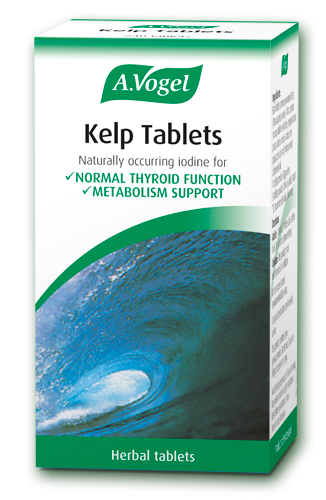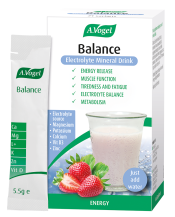1. Dry skin

Dry skin may have plagued you for some time, or perhaps you’ve just noticed it in more recent times, so what could be going on?
Our skin plays an important part in creating an effective, protective barrier against the outside world and any potential pathogens. If this intricate barrier becomes disrupted, an example would be small splits or cracks, bacteria is more likely to get in, which can then give rise to infection. This can then create additional redness or discomfort and it’s this vicious cycle which is often associated with conditions such as eczema.
Although dry skin can also be linked to a number of underlying causes, for example, allergic reactions, it could also be linked to a deficiency in some essential fatty acids.
Which nutrient?
Omega-3 is especially important for helping to maintain the plump, fluid texture of the cells that make up our skin. If your diet is low in essential fatty acids, or weak digestive functions prevent you from making the most of them, you could end up with drier, more irritable skin.
How to up your intake?
Dietary sources of omega 3 include oily fish, but there are also vegetarian sources available including flaxseeds, chia seeds or walnuts. Bitter herbs such as boldo or dandelion found in our Digestisan can help you make the most of your fats by ensuring your digestive functions are working optimally.
2. Thinning eyebrows
Thinning hair and, in particular, thinning eyebrows could be a sign that your thyroid is a little sluggish. Our thyroid gland is responsible for supporting energy metabolism and together with changes in hair thickness or quality (the texture can often also change), some other tell-tale symptoms can include feeling cold much of the time, feeling overly tired or fatigued and unexplained weight gain. 
Which nutrient?
If you suspect you have underactive thyroid, iodine is one important nutrient, in particular, that could help. Iodine helps manufacture our main thyroid hormones, T3 and T4.
How to up your intake?
Sea Kelp is an excellent source of iodine, plus as it’s in a food state form (made from Seaweed straight from the sea). It also contains a variety of other nutrients – almost like the Sea’s natural multi-nutrient!
3. Cracked lips

Whilst we’ve discussed dry skin, dry or cracking lips could also be a sign of a different deficiency.
Simply keeping hydrated and avoiding harsh heating or cooling systems is a worthwhile first step in order to help protect sensitive lips, but there could also be an internal process at play.
Which nutrient?
B vitamin deficiency could be a likely cause, especially if the dryness or cracking also affects the corners of your mouth. Look out for some other more unusual symptoms such as burning or tingling feet which can also be tell-tale signs.
How to up your intake?
B vitamins are found in whole grains, including brown rice or barley, as well as meat, poultry and fish.
If you want to up your intake further you might also want to consider trying B vitamin complex. Please note, as there are 8 B vitamins in total, they tend to work better in combination rather than in isolation.
4. White spots on your nails
White spots or flecks on your nails are one to watch out for as they could indicate a nutrient deficiency.
Whilst deficiencies could indicate you aren’t getting enough of certain nutrients, they could also indicate your digestion isn’t working optimally. We require strong stomach secretions to help ensure we absorb sufficient dietary nutrients.
Which nutrient?
If you’ve noticed some white flecks taking pride of place on your fingernails it could mean that you are at risk of being deficient in the essential mineral zinc.
Some other common symptoms to look out for which suggest you could be low in zinc can include slow wound healing or a loss in your sense of smell!
How to up your intake?
Zinc is found in a wide range of foods, from meat and shellfish, to nuts and seeds.
Then, if you’re worried your diet still isn’t allowing for a good enough intake, a supplement such as our Balance Mineral Drink can help to give you an extra boost.
5. Sweating around the head and upper body

Excessive sweating could be linked to a number of ailments, from menopause to a liver under pressure, however, interestingly the pattern in which your symptoms crop up, or the area of the body that’s most affected, could help to give us an indication of what the cause might be.
Which nutrient?
If uou find you feel sweatier mainly in and around your head, scalp or neck, it could suggest that you are low in your stores of vitamin D.
As we mainly rely on vitamin D production from our sunlight exposure, especially for those of us who reside in the UK, we’re at risk of deficiency, and especially between the months of October and April. Other symptoms of low vitamin D can include muscle and joint aches and pains or compromised immunity.
How to up your intake?
Whilst dietary sources of vitamin D are somewhat limited, adding more oily fish, eggs and mushrooms to your diet may be helpful.
Getting some sensible sun exposure during the summer months is also a useful tactic (aiming to strike the delicate balance between sun exposure and safety in the sun of course). However, if you’re worried this won’t see you through the whole of the winter, a supplement for most people is recommended.
My Top Tip:Pour one sachet of Balance Mineral Drink into a glass containing 150ml of water or milk and then stir well. The drink has a natural strawberry flavour so is both refreshing and tasty!
|
Aim for a sensible dose such as the 10ug found in our Balance Mineral Drink.
6. Muscle cramps
Muscle cramps could be a sign that you’re doing too much in the gym, but if you feel you’re suffering more than you’re due, you could also be lacking in some essential nutrients.
Which nutrient?
Leg complaints including muscle cramps or restless legs have traditionally been associated with a deficiency in the essential nutrient magnesium.
However, magnesium is a fantastic all-rounder; as well as skeletal muscles it also helps support heart health (remember the heart is also a muscle!), plus your nervous system; so think mood and sleep - bonus!
How to up your intake?
Magnesium is contained in lots of fresh food sources including green, leafy veg, nuts and seeds, however, sometimes a supplement can be helpful if you’d like to benefit from an increased dose.
I often recommend around 200-400mg daily to see if you notice an improvement in your symptoms.
7. Poor eyesight, especially at night
Poor eyesight can be a common concern as we get older and especially if you find your night vision isn’t up to scratch.
Whilst a trip to the optician to have any eye concerns checked is recommended, from a nutritional point of view, some dietary factors could also be at play.
Which nutrient?
Vitamin A is especially important for supporting healthy eyes, good eyesight and night vision.
Luckily vitamin A is a fat-soluble nutrient which means we often don’t need it in huge amounts, as your body is able to store it up.
How to up your intake?
Although this essential nutrient is found in larger amounts in certain meat products such as liver, plant-based sources are often recommended. Colourful fruit and vegetables including carrots, sweet potatoes, green leafy veg and bell peppers contain a nutrient called beta-carotene which is handily converted into vitamin A in the body. Dietary sources of vitamin A are often the best place to start in order to up your intake.
My advice is to stock up on these initially and when it comes to supplements, stick to sources of lutein and zeaxanthin instead, two other, eye specific nutrients found in our Vision Complex.
8. Non-food cravings

Non-food cravings can be alarming, from crunching ice, to sucking on charcoal or sponges, or even potentially craving more harmful substances or smells such as petrol! But what could they mean?
Rather than giving into any bizarre cravings it could be time to take a trip to your doctor instead, as there could be a nutrient deficiency at play which we could work on resolving.
Which nutrient?
Non-food cravings, also known as ‘Pica’, have been traditionally associated with iron deficiencies.
Bizarrely, we don’t know why anaemia can have this effect but it’s important to note it could be a sign that your body is shouting out for some iron.
Iron deficiency anaemia can also create cravings for red meat (actually a natural source of iron which makes sense!), as well as tiredness or fatigue.
How to up your intake?
When it comes to iron, it’s important to double check that you are definitely in need of this nutrient, as taking it unnecessarily isn’t recommended.
If your doctor is able to confirm that you are on the low side with a simple blood test, stocking up on dietary sources including meat, dark leafy greens or beetroot juice may be helpful. A gentle, iron tonic such as Floradix may also be worthwhile to help build up your levels more quickly.










